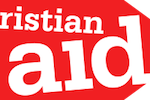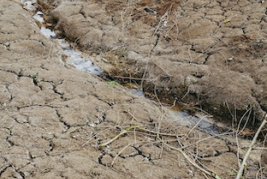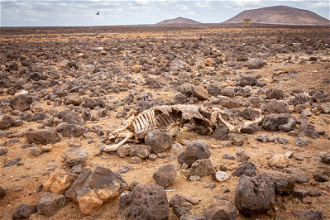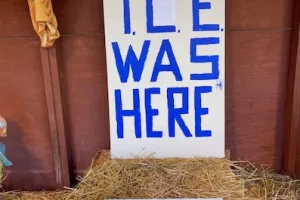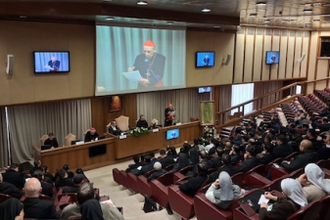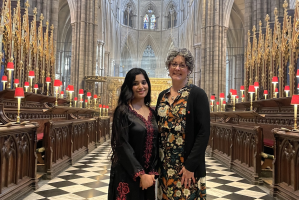Kenya: Irish missionary reflects on peace-building in East Africa
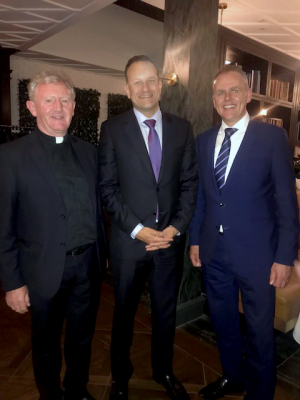
Irish missionary priest, Fr Patrick Devine, was in confident mood this week as he reflected on the on-going success of the Shalom Centre for Conflict Resolution & Reconciliation in building peace in East Africa. Fr Devine is the Executive Chairman of Shalom which he founded in Kenya in 2009, and International Chairman of its branch network in the USA, UK, Northern Ireland, and the Republic of Ireland. The Country Director of Shalom is another Irish missionary, Fr Oliver Noonan.
During a stop-off in Dublin enroute from a successful fundraising visit to the USA, Fr Devine met with the Irish Prime Minister, Leo Varadkar TD and with Government Chief Whip, Joe McHugh TD whom he briefed in government buildings. Fr Devine was a special guest at a dinner hosted by Minister McHugh.
Mr McHugh visited Shalom two years ago to see first-hand the nature and success of its work in conflict zones in Kenya. Speaking subsequently during a meeting of the EU Development Council in Brussels, Mr. McHugh said "When we have examples of peace building and conflict resolution, such as Shalom, which are successful, we should examine them and support them so that we can learn from them".
"2017 was a very busy year for us" said Fr. Devine. "The Kenyan national elections were held in August followed by a major dispute that led to a Supreme Court decision to repeat the Presidential election process in October. The Shalom programme implementation involves collaboration with numerous grassroots organisations and partners. From mid-2016 onwards, Shalom was very active amongst the ethnic communities where it works, applying proactive interventions to ensure electoral process preparedness and the prevention of election violence, right up to weeks before the election dates. This work is so important as we cannot forget that during the 2007 post-election violence, over 1,250 people were killed, tens of thousands maimed, and hundreds of thousands displaced."
"Like in 2013, the resulting peaceful election process in August brought numerous reports of appreciation to Shalom from far and wide for its role in preventing election violence. However, after the post August decision to repeat the presidential election process, the possibility for violence emerging in and during the repeated election increased. The professionalism, quality and valuable work of Shalom in its role throughout the year received wide ranging attention and coverage from media outlets in Africa and globally such as BBC, Voice of America, Germany's Deutsche Welle, Xinhua News Agency China, and others."
Pointing out that the core mission of Shalom is to transform the underlying root causes of conflict and poverty as distinct from just dealing with the symptoms, he said: "We empower people in conflict environments to be the architects of their own future. We are a highly qualified international team of men and women peace and development practitioners, from within and outside Africa, with a life-long commitment to conflict transformation and development. We operate as a strictly non-sectarian and inter-religious organization, believing that successful peace-building and sustainable development requires the involvement of people from all backgrounds. We work at the grassroots level, simultaneously partnering with people and organizations to bring life-changing peace and sustainable development that are core objectives of the UN."
Shalom is a non-political and non-profit organisation established to promote peaceful coexistence through conflict resolution and reconciliation in Africa. It has a highly qualified team of specialists in research, peace studies, development, project management, political science and international relations who work in conflict environments to transform manifest and structural violence.
In 2017, it had evidential transformative impacts on peace and development initiatives in African inter-ethnic conflict environments. It conducted 83 conflict transformation and peace-building workshops, attending to issues of inter-ethnic conflict and preventing electoral violence. The workshop training directly empowered the capacity of 2,094, of whom 42% were women. The provision of analytical skills, peace building techniques and joint inter-ethnic/inter-religious development project planning were at the core of the empowerment. The attendees included chiefs, elders, government officials, women's leaders, religious leaders, and influential opinion shapers.
During the year, Shalom also completed 56 development assignments involving 32 primary and 13 secondary schools with 15,750 pupils, and 11 other community infrastructure interventions addressing social, medical and water requirements. In addition, 12 primary schools in conflict zones, comprising of 6,500 pupils, have been the target population for the implementation of the successful Shalom Educational Peace Syllabus. Of commendable note also are its continuing efforts in South Sudan, involving peace and educational interventions. It continues to actively fund and support work aimed at overcoming human trafficking in Eastern Africa.
Fr. Devine points out that in often dangerous, underdeveloped terrains, these interventions involve extraordinary diplomatic, organisational and logistical efforts. "The work takes place in conflict environments where people live and experience the dangerous underlying factors underpinning their warring relationships, frequently manifested in killing, maiming and displacement. At the heart of the our modus operandi is collaboration, empowering communities in conflict to be analysers, architects and owners of their own interdependent future, from the bottom up as distinct from the diagnostic solution being prescribed from the top down" he says
The peace-development nexus is a constituent component of Shalom's approach with the two pillars of social cohesiveness being intrinsic to its methodology. This approach is not only about transforming violent manifest conflict primarily to settlement, which is only an absence of violence (negative peace), in the overall process of continually addressing structural violence as vital towards attaining positive peace (resolution). The peace-development nexus is fundamentally an intricate interdependent process concerned with enabling people to meet their basic human needs and actualise their potential.
An interesting aspect of Shalom's peace-building work is how it provides school building materials and solar lighting, underlining the importance of education in the road map to peace. These schools because of their solar lights also double up as evening community centres giving people the opportunity to come together in a neighbourly way to discuss issues of concern or local needs.
"The continuing enthusiastic and voluntary participation of religious and civic society organisations in our conferences, conflict transformation and peace training programmes, research collection methodology, advocacy about conflict issues, fostering of inter-ethnic school education, interreligious Dia-Praxis initiatives, solar lightning projects, confirms the importance of Shalom's contribution" says Fr. Devine
Another occurrence of significance in 2017 was the invitations from numerous high profile institutes around the world to Fr Devine to share Shalom's unique methodology and experience as an NGO in Africa. In Kenya, Shalom personnel lecture at various universities, such as the MA course on Social Research and Statistics at Hekima University, and the course on Conflict Resolution and Reconciliation at Tangaza University. Other members of the team are also involved with the University of Nairobi. Shalom's memorandums of understanding and partnerships with 1GAD (Intergovernmental Authority on Development comprising nine countries in East Africa), Edward M Kennedy Institute for Conflict Intervention at NUI Maynooth, Senator George Mitchell Institute for Global Peace, Security and Justice at Queens University Belfast, AMECEA (Association of Member Episcopal Conferences in Eastern Africa), and Irish Bishops' Conference development agency, Trócaire, will continue to be the basis for progressive interactions and conflict intervention initiatives.
Explaining their commitment to transparency, Fr Devine said: "Through our newsletters, website, social media posts, and our international lecturing and academic involvement, we continue to make public and transparent the results achieved, processes engaged, lessons learned, and needs going forward."
An independent development consultant from Ireland, Mike Williams, undertook an effectiveness review of the work of Shalom earlier this year and concluded in his report that: "Shalom's contextually driven, rigorous but adaptable and forward-looking methodology represents a model approach towards peace-building in highly complex situations. The approach, with its emphasis on community leadership, stakeholder participation, high technical competency, logic models, results frameworks, stories of change and advocacy linkages also reflects current best practice within both the peace-building and development sectors." A very powerful endorsement that should give comfort and confidence to individuals and organisations that support Shalom.
Further information is available at www.shalomconflictcenter.org. Readers wishing to support or to get involved in Shalom support groups in the UK can contact Andy Rogers in London at andy@rogersassociates.com or 01- 7785920810, or Harry Lloyd in Manchester at harryl@btinternet.com.
Matt Moran is a writer on missionary matters, and author of The Legacy of Irish Missionaries Lives On - available from www.onstream.ie



